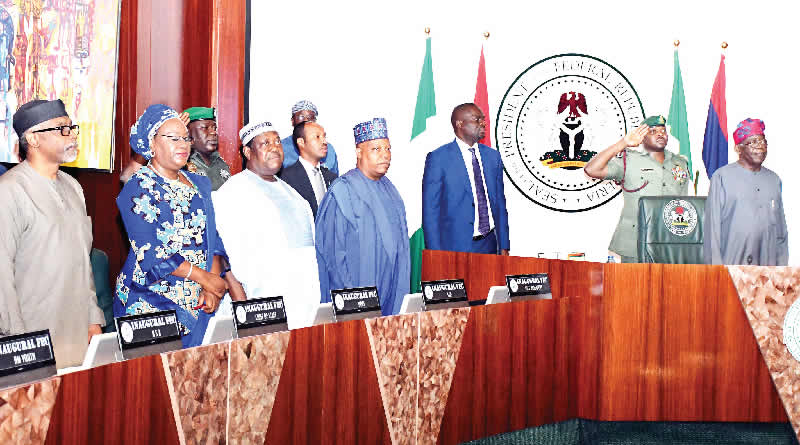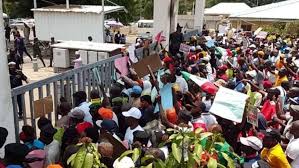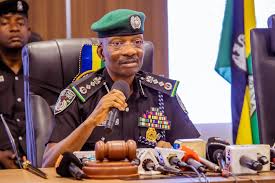
First FEC Meeting : Unfolds three-year economic revival plan, Tinubu warns ministers
The Federal Government, yesterday, unveiled 8-point agenda to revive the country’s sick economy.
While insisting that the present administration inherited a bad economy, with an inflation rate of 24 per cent, and unacceptably high unemployment, the Federal Government said the 8-point agenda was based on eight priority areas, with identified targets that would be delivered within the next three years.
These are food security; ending poverty, economic growth and job creation, access to capital, particularly consumer credit, inclusivity in all its dimensions, particularly as regards youths and women, improving security, improving the playing field on which people and particularly companies operate, rule of law, and of course, fighting corruption.
Also, the government assured Nigerians that the administration of President Bola Tinubu does not intend to rely on borrowing and that he has pledged to be transparent, honest and accountable to the people of Nigeria.
‘50 million jobs to come"
This President Tinubu's promise to create about 50 million jobs through the Ministry of Trade and Investment.
Briefing State House correspondents at the end of the inaugural Federal Executive Council, FEC meeting, presided over by President Tinubu at the Council Chamber, Presidential Villa, Abuja, the Minister of Finance and Coordinating Minister of the Economy, Mr Wale Edun, while fielding questions from journalists said that the Tinubu administration met a very bad economy with inflation at 24 per cent.
When asked to describe the kind of economy the government met on the ground : “Per capita has fallen steadily, inflation is at 24 per cent, unemployment is high, you know they are rebasing the way in which it’s calculated, he said.
“Either way, it is high and youth unemployment is even unacceptably high, these are the key metrics that we have met.”
Asked to be specific on the kind of economy the Tinubu administration met on the ground, he said: “We met a bad economy and the promise of Mr. President is to make it better.”
He also said that the Federal Government is not in a position to borrow money at this time, adding the emphasis is on how to create a macroeconomic environment where both local and foreign investors will invest and increase production.
The Minister of Trade and Investment, Dr. Doris Anite said that the President has to create 50 million jobs.
Ministers get marching orders
President Tinubu has given the cabinet members a marching order to marshal the revival of the economy and make life more bearable for the people.
The marching order was given at the council meeting where the “Roadmap for the economy” presented by the Minister of Finance and Coordinating Minister for the Economy was considered. Edun said the council agreed that the economy is not where it should be.
Eight-point agenda
He said FEC examined eight priority areas and identified targets to deliver in the next three years.
He affirmed that President Tinubu has charged the ministers to roll out policies and programmes to turn around the economy.
“First he congratulated everybody and emphasised the high expectations of Nigerians and he encouraged us to be bold and courageous and innovative and to act with urgency in delivering a better life to all Nigerians.
“Essentially, we went through an exercise of looking at where things stood, regarding the economy, the growth rate, the exchange rate, inflation, unemployment and so on.
“The overriding conclusion is that we’re not where we should be and we also examined the President’s eight-point agenda, that is the eight priority areas for moving the Nigerian economy forward and for delivering to Nigerians and those are basically food security; ending poverty, economic growth and job creation, access to capital, particularly consumer credit, inclusivity in all its dimensions, particularly as regards youths and women, improving security, improving the playing field on which people and particularly companies operate, rule of law, and of course, fighting corruption.
“It is around this matrix that the plans and targets of what will be delivered in the next three years or so were identified, discussed and inputs were given by various ministers and we’ll now go away with the marching order to refine further the targets in particular and within weeks to start rolling out policies and programmes to turn around the economy and make things better for all Nigerians. That really is the substance of what the discussions were all about.”
When asked how the country would repay the loans since they were for consumption: “Clearly, the Federal Government is not in a position to borrow at this time. Rather, the emphasis has to be on creating a stable, macroeconomic environment, stable inflation, stable exchange rate. he said.
“An environment within which people can come and invest and thereby increase production and further grow the economy.
“Improve and create jobs and reduce poverty. So, the aim of all reforms at this time is to focus on what we call equity to focus on investment to attract investment by Nigerians. Investment by foreign direct investors and even investment by portfolio investors who want to invest in the financial aspects of the Nigerian economy, such as the stock market, such as the bond market.
“So that is the plan. That is the expectation and it is that there will not be a reliance on borrowing. Rather, as revenues increase, the benefit of removing fuel subsidy and the subsidy on the exchange rate, means more money for the government at all levels.
“Because, of course, through oil revenue, the federation earns dollars and if those dollars are feeding through, at let’s say, 700/750 or so naira to one dollar as opposed to 460 where it was before; clearly, that is repairing the finances of government at federal, state and local government levels. So, that’s the plan.”
Also, briefing, the Coordinating Minister of Health and Social Welfare, Dr. Ali Pate, said, “The President’s vision is that of economic growth, prosperity for all, ending poverty, I think the Coordinating Minister of the Economy laid out those important priorities, which were discussed in the Council Chambers.
“One element that is key and underlying all of those efforts is the people, Nigeria’s most important asset is its people, its youthful population and the human capital that is bestowed in that youthful population.
“So Mr President’s vision includes the idea of harnessing the human capital of our youthful population, to achieve prosperity for everyone.
“To mobilise the social capital that is in our country, uniting us as a people, to drive this transformation that is his direction for the administration, that includes dealing with nutrition, food and we have the Minister of Agriculture and Food Security. Health, preventive diseases, but also quality of health, are not only an area that supports people to live healthier lives, but healthier people also drive economic growth. Education, to ensure that people are not left behind, so that the child of anyone can aspire to the highest levels, so that we’ll have an inclusive economy as the Minister of Finance and Coordinating Minister indicated.
“The poorest and the most vulnerable populations; girls, women, children, disabled are an important element in that human capital agenda of this administration.
“The bias is towards action so that we’ll get things done and he’s very clear that the President wants us to domesticate our efforts within our own national context, but also to be very practical in the interventions that we’ll make.
“With those marching orders, we now have our jobs cut out for us and we’ll continue to refine, as the Coordinating Minister of the Economy indicated.
“The President has high expectations and he urges us to ensure the high expectations of Nigerians are met and I believe that the entire cabinet is enthused to follow the President’s directions and to start to deliver for Nigerians.”
Tinubu tasks ministers at inaugural FEC meeting
Speaking at the inaugural FEC, the President said, “It is a great commitment that you have for the country. Since the inauguration, being appointed as minister is to become a servant for the people, and serving all the people.
“Nigerians expect a lot from all of us. As I said during the inauguration, I am the bus driver and you are the conductor.
“We have to make sure this country stays on the right path to succeed on behalf of over 200 million Nigerians.
“We willingly accepted the appointment and I accepted the mandate of Nigerians. I have delegated some of these powers to you to serve the country.
“You are a very lucky person to be selected among millions of Nigerians and we will use the opportunity to show that Nigeria has what it takes to dig ourselves out of our problems.
“We must find a homegrown re-engineering of our finances, manage our resources and let the economy work for the people of this country.
“There are so many things some cynics will say is impossible. But in your dictionary of service, everything is possible and must be possible.
“We have the talents; we have the level of intellectual capacity to turn this country around. You and I know that the expectation is high and it’s a tough time right now.
“We





